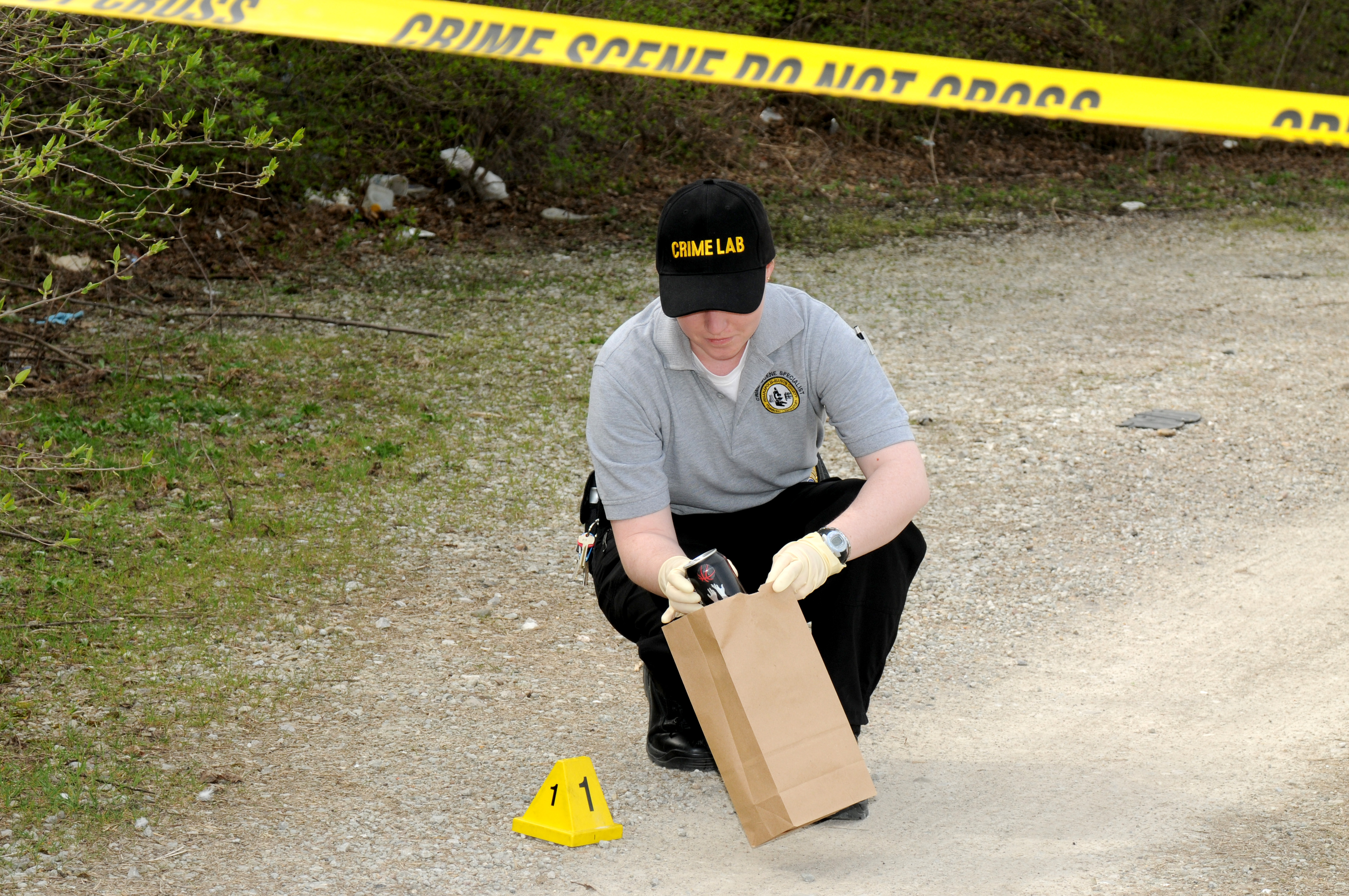
Forensic science is science used for legal purposes and by definition provides impartial evidence to scientifically support or debunk evidence presented in courtrooms. There has been an increase in popular shows across several television networks that showcase many related shows such as CSI, Dateline, First 48 and others. Some of the shows are a little misleading, however because there are many different career fields when dealing with the broad field of forensic science. There are people who are at the scene collecting evidence, people at the local crime labs testing the evidence found, handling the actual body to figure out the cause of death, etc. In the field of forensic science, there are many positions for those interested.
A general forensic scientist’s duties are made up of varying activities, and will be different according to the specialization of the scientist. Field work, and crime scene analysis will be very different from a solely laboratory-based position. A typical day for the former may include evaluating a scene to determine the relevance or importance of any and every item at that scene. They might take images or make sketches in order to recreate the scene. The latter might perform any number of tests on the evidence collected to determine if chemical composition, identification of minute physical evidence, or study of organic tissue might shed light on the crime. They may also have to present their finding in a courtroom as an expert witness on either the results found or the processes used to draw conclusions from the evidence examined. The hours are not the typical 9 to 5 hours of a regular job, the hours may vary due to the unpredictable times of crime.
As far as education goes, a bachelor’s in a natural science such as biology, chemistry, biochemistry, or even the more recently available forensic science are among the qualifying degrees. Within the coursework for that degree, someone wanting to pursue a forensic science career would do well to have a good mixture of mathematics, biology, chemistry, human genetics, and biochemistry classes because all are needed skills for this field of study. It would also be good to take English and Speech classes as well to improve on writing and speech skills needed for writing reports for work or for testifying in court. Hands-on training is also essential to succeeding in this career field. Aspiring students could gain this experience through internship opportunities or by working in an entry level position at a local police station or crime lab.
Some examples of specific fields of study within forensic science includes criminology, pathology, odontology, document examination, physical anthropology, toxicology, and behavioral science to name a few. A criminologist would study physical evidence to link to suspects involved in that particular case. A pathologist studies diseases and is hands on with the body and organs of the deceased to figure out the cause/time of death. An odontologist identifies mostly dental remains and also helps to determine the cause/time of death from the dental remains. A document examiner studies different handwriting and answers questions in regards to documents such as determining whether or not a signature is real and if said document has been altered. A physical anthropologist studies the bones of a victim which helps also to determine the time/cause of death. Toxicologist helps to determine any substances in a victim or suspects system such as drugs or alcohol. A behavior scientist is one who studies mental health and helps to determine the mental health of the victim or suspect.
There are many specializations and duties which are included in the field of forensic science. If a person is interested in this field, at minimum the requirements are that they should be an honest person, pay very close attention to detail, and exude consistency. With the many fields in forensic science, there is enough opportunity for anyone interested in that area of criminal justice no matter what their personality or aptitudes.
By Ashleigh Hearn
Sources:

